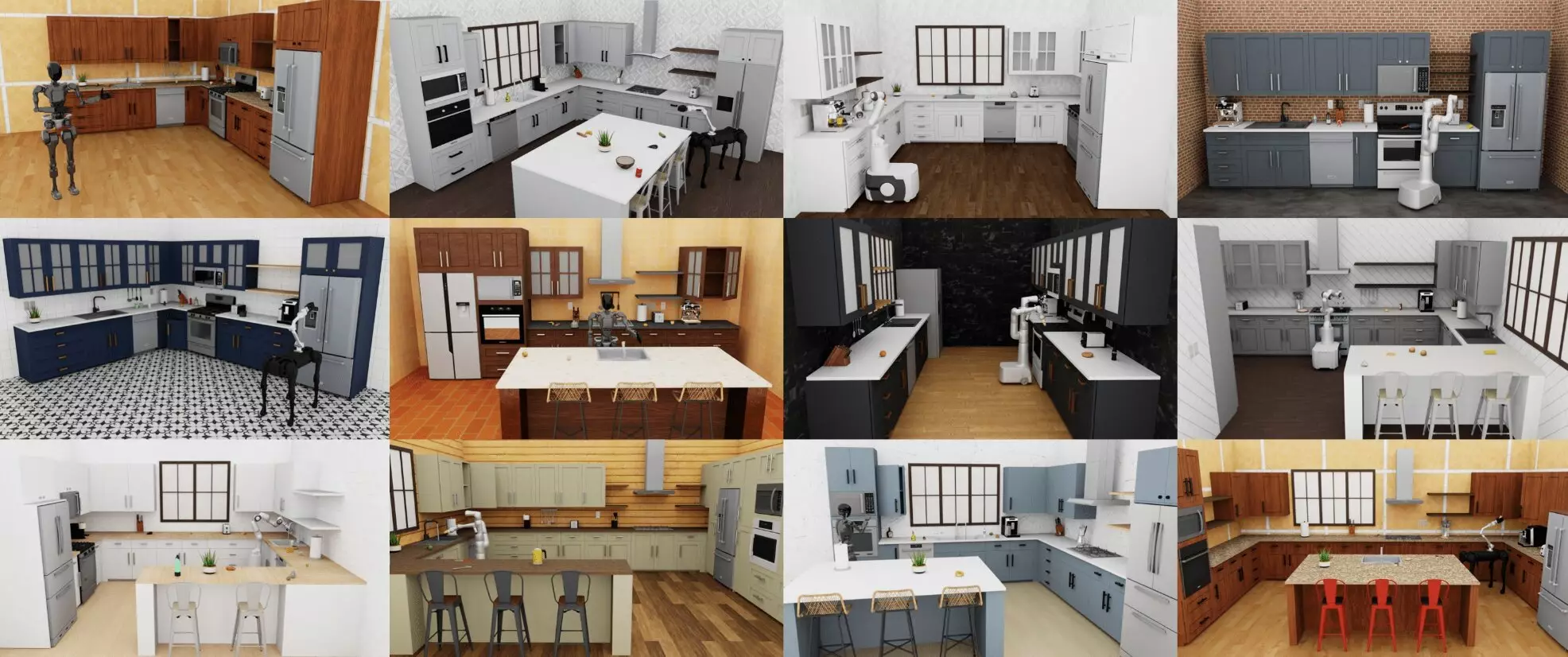Artificial intelligence (AI) tools have made significant strides in recent years, particularly in the fields of natural language processing (NLP) and computer vision algorithms. The rapid improvement in the performance of large computational models can be attributed to the exponential growth of datasets used to train these algorithms. These datasets, often consisting of hundreds of thousands of images and texts sourced from the internet, have played a crucial role in advancing AI technologies. However, when it comes to training data for robot control and planning algorithms, the landscape is quite different. Acquiring training data for robotics applications is not as straightforward, leading some computer scientists to explore ways to create larger datasets and platforms to train computational models for robotics.
Researchers at the University of Texas at Austin and NVIDIA Research recently introduced RoboCasa, a large-scale simulation framework designed to train generalist robots to perform various tasks in everyday settings. Led by Yuke Zhu, the team developed RoboCasa to provide high-quality simulation data required to train foundation models for generally capable robots. The platform is an extension of RoboSuite, a simulation framework introduced by the team a few years ago. By leveraging generative AI tools, RoboCasa offers diverse object assets, scenes, and tasks, enhancing the diversity and realism of the simulated world. With over 100k trajectories available for model training, RoboCasa supports various robot hardware platforms and aims to facilitate the training of robotics algorithms.
RoboCasa boasts thousands of 3D scenes featuring over 150 different types of everyday objects, as well as dozens of furniture items and electrical appliances. The platform offers highly realistic simulations, enriched through the use of generative AI tools. Additionally, the researchers designed 100 tasks for robotics algorithms to be trained on, along with compiling high-quality human demonstrations for these tasks. RoboCasa also includes methods to generate effective trajectories and motions for robots to complete tasks, highlighting its versatility and potential in training generalist robots.
In their experiments, Zhu and his team observed two key findings that underscore the potential of RoboCasa. Firstly, they demonstrated a scaling trend, showing that as the size of the training datasets increased, the model’s performance steadily improved. Secondly, by combining simulation data with real-world data, they found that the augmented dataset enhanced the robot’s performance in real-world tasks. This study serves as a testament to the effectiveness of simulation data in training AI models for robotics applications. The platform has proven to be a valuable resource for generating synthetic training data, particularly for training imitation learning algorithms.
Moving forward, the researchers plan to enhance and expand RoboCasa by incorporating more advanced generative AI methods to further enrich simulations. Their goal is to capture the variety and richness of human-centered environments, ranging from homes and factories to offices. As an open-source platform, RoboCasa is accessible on GitHub, allowing other teams within the robotics community to experiment with the framework. The continuous development and improvement of RoboCasa signify a promising future for training generalist robots using generative AI tools, paving the way for advancements in robotics technology.


Leave a Reply
You must be logged in to post a comment.